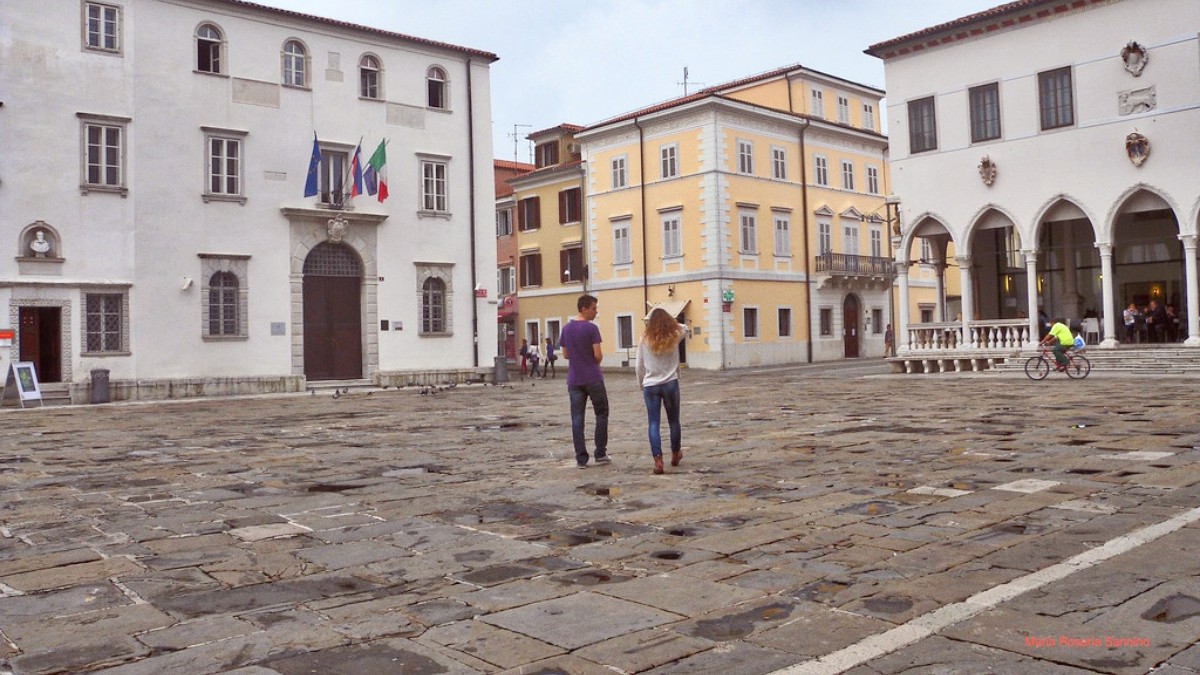
Karst And Coast, Slovenia
Koper's culinary heritage intertwines with its history. Venetian rule left a mark, evident in olive oil, seafood, pasta, and Mediterranean herbs. Central European (Austro-Hungarian and Slavic) traditions contribute hearty stews and cured meats.
This fusion creates distinct Istrian cuisine, characterized by simple preparation that highlights ingredient quality.
Lunch ("kosilo") is typically 12 PM - 2 PM. Dinner ("večerja") usually starts after 7 PM, busy around 8 PM.
Reservations are recommended for popular restaurants. Bread is often served; it may incur a small charge.
Tipping is not mandatory but appreciated for good service. In formal restaurants, wait to be seated; casual eateries allow choosing your own table.
Simple, flavorful mussels or shrimp cooked in white wine, garlic, olive oil, and breadcrumbs.
Find in seafood restaurants along the coast.
Diamond-shaped Istrian pasta with a rich, creamy truffle sauce, a delicacy during autumn truffle season.
Typically found in higher-end or specialized regional cuisine restaurants.
Hearty, traditional Istrian stew combining sauerkraut, beans, potatoes, and smoked pork or sausage.
Look for it in traditional "gostilna" (inns) serving rustic Slovenian fare.
Flaky pastry filled with meat, cheese, or spinach, an affordable and filling snack.
Potica is a rolled pastry (walnut often); Gibanica is a layered pastry, with Prekmurska Gibanica being a famous type.
Limited true fine dining in Koper, but some upscale restaurants provide excellent quality, refined ambiance, and focus on fresh ingredients.
The majority of Koper's restaurants fall into this category, balancing quality, pleasant ambiance, and reasonable prices.
Koper offers numerous pizzerias for quick, satisfying meals and bakeries for pastries, bread, and burek.
A lively market offering fresh local produce, seasonal fruits, freshly caught seafood, local cheeses, olive oil, and other regional products.
Excellent place to pick up ingredients or observe local life.
While a traditional market, it does not function as a modern food hall with diverse prepared food vendors, but rather focuses on raw produce and goods.
Food stalls may appear during specific local events or festivals.
Pizzerias and pasta dishes are widely available.
Some eateries offer cevapi and other Balkan specialties.
A few Asian restaurants are present in the city.
Occasional diverse options may appear.
Speak directly with restaurant staff about your requirements.
Slovenian phrases for dietary needs are helpful.
Use Google Translate or a physical phrasebook for dietary phrases.
A reliable Translation app is a travel asset.
If you have very strict dietary needs, purchasing clearly labeled products from supermarkets is the most reliable approach.
Inquire about ingredients when ordering, even if menus list allergens, for clarity.
Slovenian Istrian hinterland is home to many olive oil producers.
The region boasts numerous wineries, known for Malvazija and Refošk varieties.
Some agritourism farms in the surrounding hinterland offer traditional Istrian cooking experiences.
Offers an authentic Istrian experience in rustic taverns.
Specializes in hearty, homemade dishes, fresh seafood, and local wines.
Many "konobas" are in Koper's old town, providing a glimpse into traditional Slovenian dining.
A cozy setting for a true regional flavor experience.
When visiting the Koper Central Market, arrive in the morning for the best selection of fresh produce and seafood.
This is when local vendors display their freshest goods and local specialties. Look for seasonal produce.
Interacting with local vendors offers insight into daily life and regional culinary traditions.